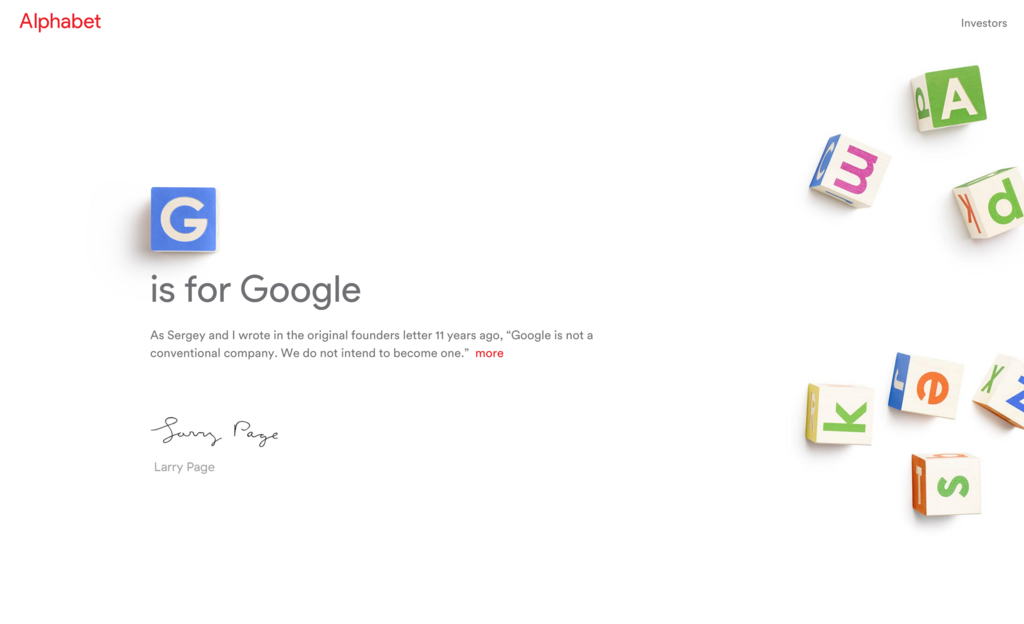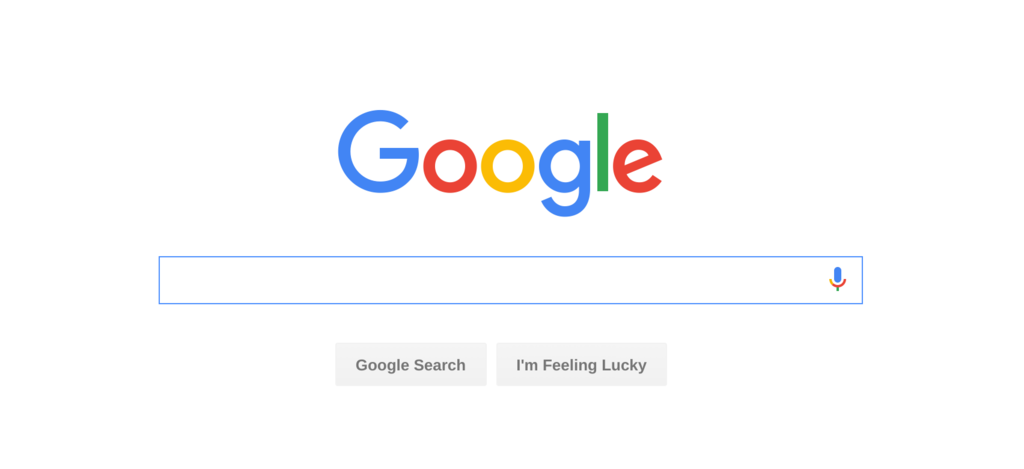Explained: Alphabet Inc.
Why the Google co-founders created their own alphabet
Earlier in August, Google co-founder, Larry Page, announced the birth of Alphabet Inc. and the major restructuring of Google in a blog post. The breaking of the news caught the world by surprise and sparked a lot of discussion, confussion, and left many puzzled. Some of questions that I personally had included: "What does this mean for Google?", "Why are they doing this?", and "What is the full list of subsidaries under Alphabet?"

Alphabet Inc. is a proposed public holding company with many businesses inside it, of which Google is the largest. Other subsidaries under Alphabet include Calico (focusing on aging), Capital, Life Sciences (working on glucose-sensing contact lenses), Nest, Ventures, and the X labs. Larry Page will assume the role of CEO of Alphabet with the help of Sergey Brin as President. This new structure can be thought as being modelled along the lines of Warren Buffet's Berkshire Hathaway, one of the largest holding companies in the world.
"If we were motivated by money, we would have sold the company a long time ago and ended up on a beach." - Larry Page
Having a good, long thought about it, Google's reorganisation into Alphabet does make sense. The vision of the Google co-founders can be clearly highlighted in their move. Let's keep things real; Larry Page and Sergey Brin aren't obsessed with the business of search advertising. Don't get me wrong though, Google is still a business and it does rely on the revenue brought in by search advertising to keep things running.
What sets these two co-founders apart from their peers is their constant pursuit of bold, audacious ideas, which also include moonshots. Over the years, Google has expanded to include their numerous products, which include Search, Maps, Gmail, Android, Chrome, and YouTube. Top that off with moonshots like the self-driving car project and Project Loon, Google has grown into quite an organisational hell.

So yes, the Alphabet reorganisation does make sense to keep things more accountable and cleaner, which also gives Google the chance to focus on its core products. Getting great CEOs to continue the day-to-day work at the office will hopefully get the best out of each business. This in turn will make it a win-win for almost everyone including the investors of Google, who aren't very pleased with moonshots as they are still a far cry from being monetized.
"Google is not a conventional company. We do not intend to become one."
In his blog post, Larry reminded us what Sergey and him wrote in the original founders letter 11 years ago by saying, “Google is not a conventional company. We do not intend to become one.” That being said, they've always like to keep pusing themselves as they've realised that being great just isn't good enough. What we can expect from the businesses under Alphabet in the future is to see their projects and products actually becoming a reality. It is exciting to see what a relatively small group of people can do to get more ambitious things done by taking the long-term view which can potentially result in improving the lives of billions around the world.
This is be best summed up in the words of cultural antropologist, Margaret Mead, who said: "Never doubt that a small group of thoughtful, committed citizens can change the world; indeed, it's the only thing that ever has."
No comments
Post a Comment